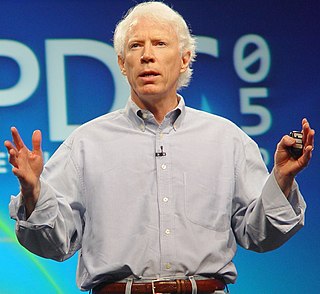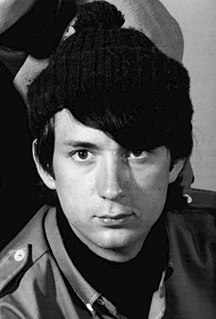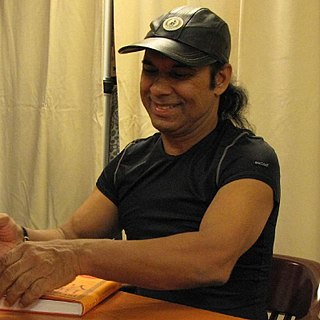A Quote by Eric Allman
The intellectual property situation is bad and getting worse. To be a programmer, it requires that you understand as much law as you do technology.
Related Quotes
For better or worse, we are the Court of Appeals for the Hollywood Circuit. Millions of people toil in the shadow of the law we make, and much of their livelihood is made possible by the existence of intellectual property rights. But much of their livelihood - and much of the vibrancy of our culture - also depends on the existence of other intangible rights: The right to draw ideas from a rich and varied public domain, and the right to mock, for profit as well as fun, the cultural icons of our time.
I have bad days. Sometimes I have a lot of bad days. By and large, I think most people fall into a bad mood because they're able to ruminate on whatever the problem at hand is, and that makes it worse. But when you intercept the rumination process with something that requires your full attention - that's stimulating and absorbing, that places a demand on your intellectual focus - you don't get to ruminate. In a way, it's a mental health aid to be able to do that so much. My routine, what I do, it just feels like home. It's my comfort food.
The mission of the law is not to oppress persons and plunder them of their property, even though the law may be acting in a philanthropic spirit. Its purpose is to protect persons and property.... If you exceed this proper limit -- if you attempt to make the law religious, fraternal, equalizing, philanthropic, industrial, or artistic -- you will then be lost in uncharted territory, in vagueness and uncertainty, in a forced utopia or, even worse, in a multitude of utopias, each striving to seize the law and impose it on you.
As I understand it, I am being paid only for my work in arranging the words; my property is that arrangement. The thoughts in this book, on the contrary, are not mine. They came freely to me, and I give them freely away. I have no "intellectual property," and I think that all claimants to such property are theives.
Resilient people recognize that no matter how bad the circumstances are, their situation could always be worse. They don't allow themselves to exaggerate how terrible their problems are, and they don't run around predicting how much worse things are going to get. Instead, they view failure with an accurate perspective.
Anyone who knows anything should know you cannot take a master track of a recording and write another song over the top of it. You just can't do that. You can call it a tribute or whatever you want to call it, but it's against the law. That's a problem with some of the younger generation, they don't understand the concept of intellectual property and copyright.




































